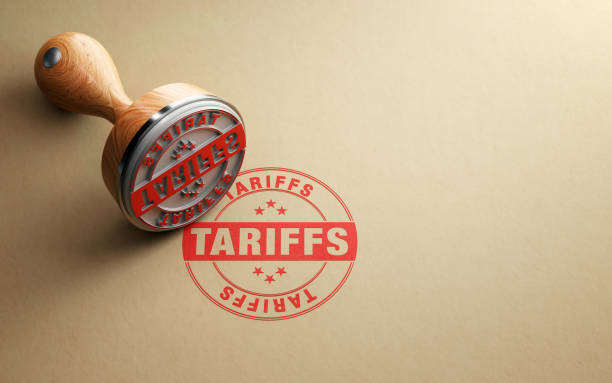A quick poll of digital infrastructure industry leaders suggests that President-elect Trump’s tariffs would likely lead to higher costs across the telecommunications sector. With that said, many are taking the long-term view of the tariffs impact on the industry.
“I think the tariffs are a tool to equalize global trade and protect U.S. interests more broadly,” Marc Ganzi, CEO of DigitalBridge (NYSE: DBRG) told Inside Towers. “More specifically, in key areas like Gen-AI and Edge computing, the U.S. needs to continue to invest and build a strong strategic position at home. I believe these policies enforce that view and the strategic priorities to our country.”
While one industry resource said he didn’t feel informed enough to know specific impacts, he would agree that overseas materials and manufactured goods will necessarily go up in price, such as steel, or magnesium or goods used in radio and antennas systems.
“But I’m an unapologetic America-first believer,” the source told Inside Towers, “and I fully believe that whatever short-term pain points we might feel in Trump tariffs will be offset by a stronger economy in the U.S. It may be a coincidence, but wireless had its best days during Trump’s first administration and has had its worst days in the last 2-3 years. Even under former Democrat administrations, we haven’t seen such challenging times in wireless. It is my hope and belief that under the America-first doctrine, the overall economy will begin to improve including the wireless economy.”
The tariffs, particularly those on imports from China, are projected by analysts to have a significant impact on the telecommunications industry, as it relies heavily on that country for imported equipment, components, and devices. However, industry observers say a slowdown in imports align with goals to enhance national security and reduce reliance on China, and result in long-term benefits if domestic production ramps up.
“Pushing further into the wireless eco-system,” Ganzi said, “there will be puts and takes on the impact of tariffs on us and our key carrier partners. Radio and RAN equipment need to be able to flow seamlessly in the country, along with other associated equipment and supply chains. We are in the middle of building next gen wireless networks; the reality is our wireless economy relies on foreign vendors and partners. Time will tell if these supply chains are impacted.”
Ganzi expressed his support in Trump’s choice to head the FCC. “I am confident Brendan Carr understands these puts and takes carefully,” he said. “I look forward to supporting him and working with him again.”
The impact of the tariffs is yet unknown but our Inside Towers poll raised the following pertinent points, both pro and con, that could ensue:
- Carriers may reduce investments in next-generation technologies due to rising costs, affecting the U.S.’s position in global 5G competition.
- Some companies may attempt to shift manufacturing from China to other countries, such as Vietnam or India. While this diversifies supply chains, it could introduce delays and higher initial costs.
- Rural broadband initiatives, already expensive, may face delays as costs rise, further exacerbating the urban-rural connectivity gap.
- Foreign telecom companies not subject to similar tariffs may gain a competitive edge, as they can source components more affordably.
- Increased costs for telecom providers are likely to be passed on to consumers, raising prices for mobile and internet services.
- Tariffs may also lead to fewer affordable device options for consumers, reducing access to smartphones and other telecom devices.
- Telecom companies may seek tariff exemptions for essential equipment.
- The industry may invest in innovative technologies to reduce costs and reliance on tariffed components.
By Jim Fryer, Inside Towers Managing Editor





Reader Interactions